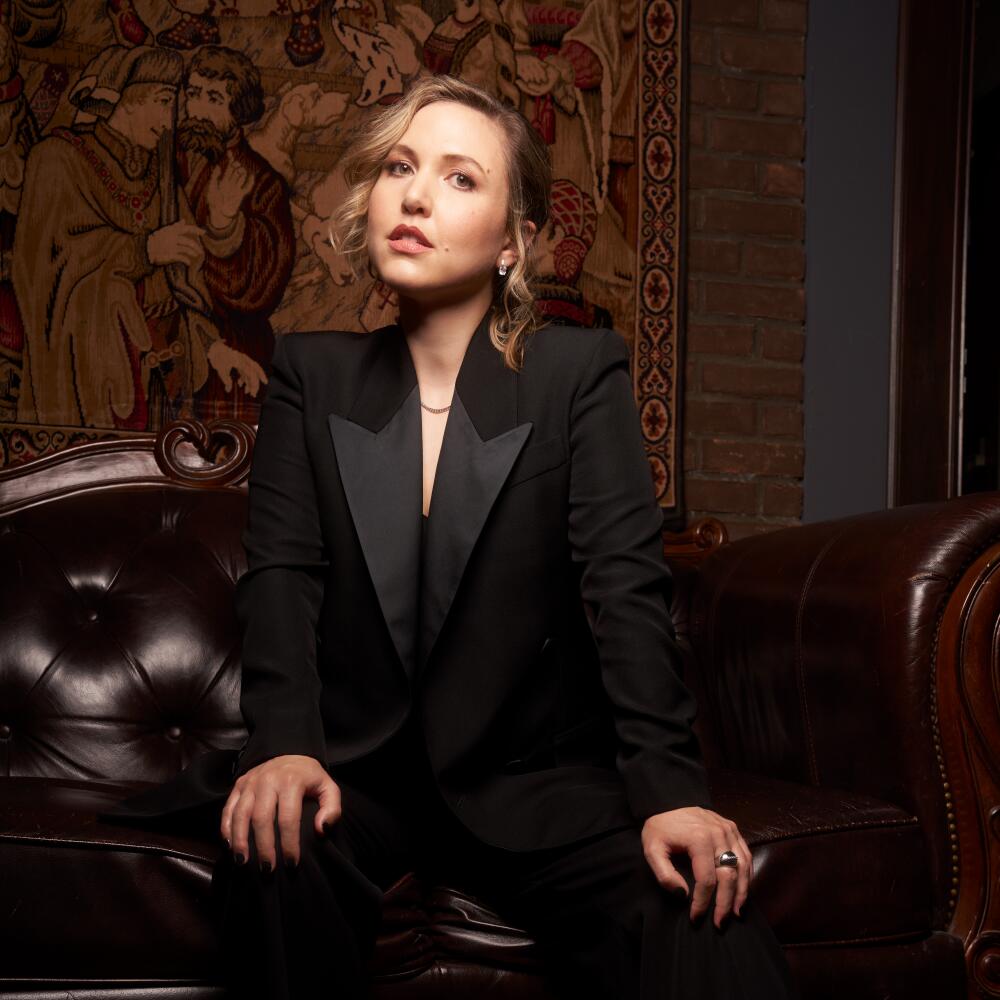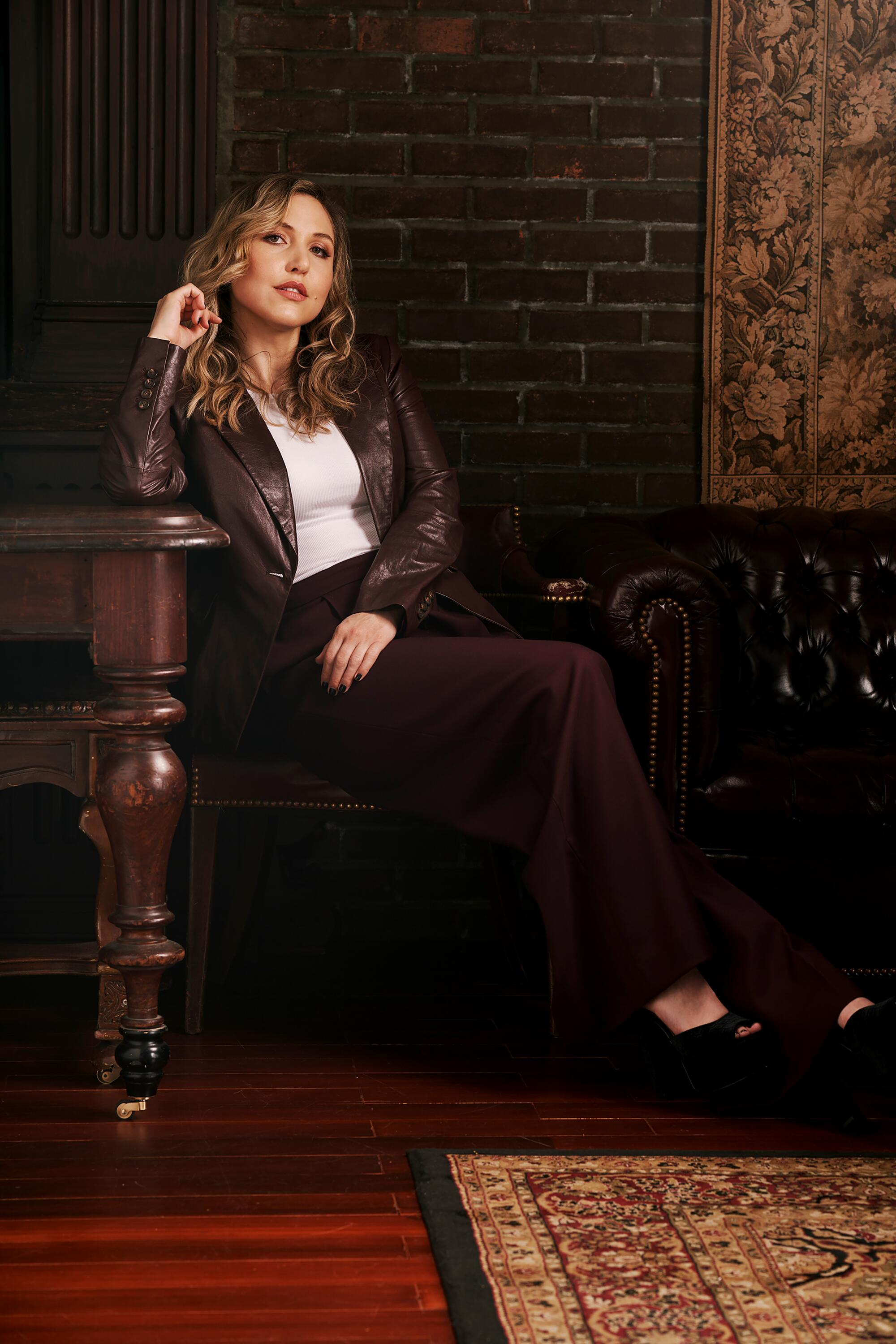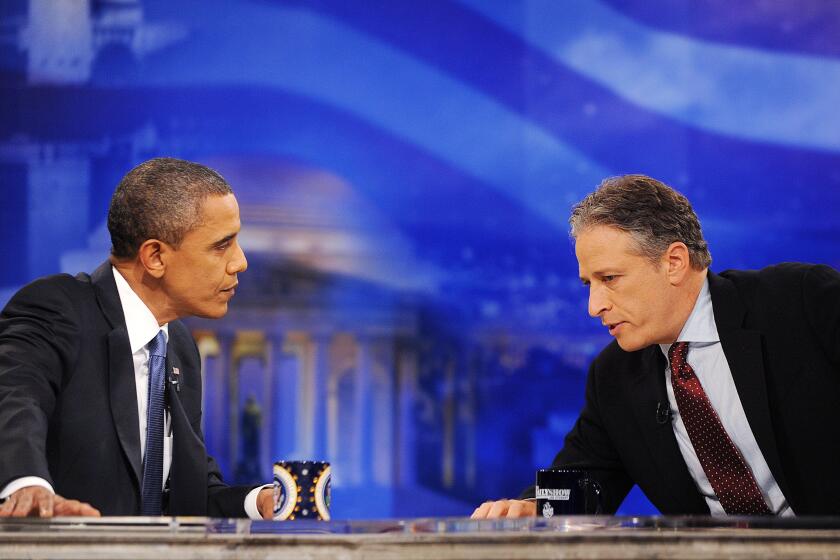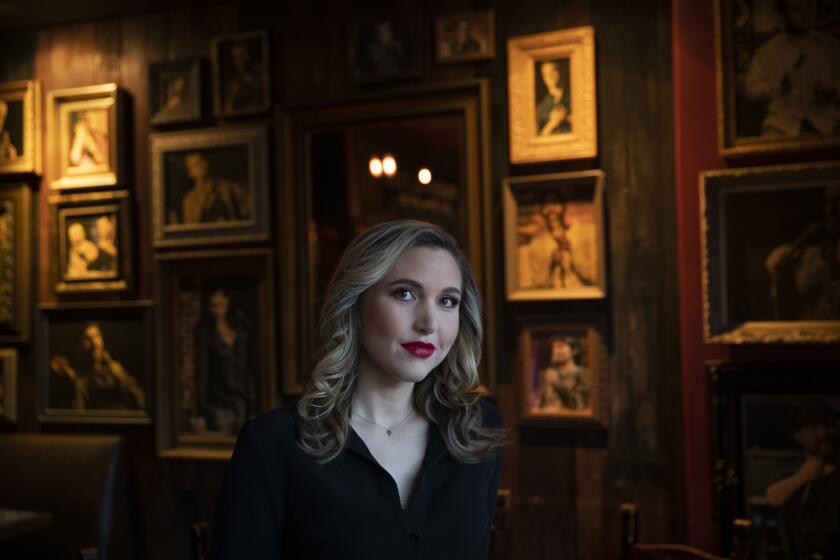
In November, Taylor Tomlinson celebrated a milestone birthday. The stand-up sensation turned 30, an age when she figured she’d officially be an adult. Things haven’t worked out quite as she’d planned.
“When I was 20, I thought I was going to be married [by 30],” she says over the phone from Los Angeles in early May. “I would maybe be getting ready to have kids. I thought that if I could tour theaters in my 30s, that would be incredible. The fact that I was able to do that in my mid-20s, now I don’t even know if I ever want to get married or have kids. It’s so strange to feel so differently about everything, but it is comforting to look at where you are and how it’s not what you envisioned and go, ‘Oh, but I like this too.’”
Since the release of her debut Netflix stand-up special, “Quarter-Life Crisis,” which came out in 2020 just days before the COVID shutdown began, the candid, cutting Southern California native has been leveling with her audience about her anxieties and aspirations. Raised in a conservative Christian household, Tomlinson abandoned religion and pursued a comedy career, along the way getting engaged (and having that engagement end), being diagnosed as bipolar (which formed the core of her second special, 2022’s “Look at You”) and, now as a successful headliner, grappling with the knowledge that achieving her professional dreams doesn’t mean she’s gotten everything she wanted.
Though streaming and social media have upended how viewers consume late-night series, innovation on the shows themselves has been much more stagnant.
These concerns weave through her February release,“Have It All,” her third and most touching Netflix special, in which she incisively reflects on being rich and famous at 30, yet still alone and romantically unfulfilled. But if the special marks a turning point in Tomlinson’s life, so does her new day job. When James Corden announced he was leaving “The Late Late Show,” CBS decided to relaunch the Comedy Central game show “After Midnight,” announcing Tomlinson would be the new host.
It was a plum gig, but she wasn’t sure she wanted it.
“I was looking for reasons to not do it,” admits Tomlinson, who feared that hosting would cut into her first love: stand-up. But when she learned that “After Midnight” would require her services only Monday through Wednesday, allowing her the freedom to perform on weekends, Tomlinson warmed to the idea.
“I was really surprised that I wanted to do this job,” she says. “But I was feeling some loneliness — not on the road. On the road, I had my tour manager, my best friend opening for me; I had what I felt like was a team. But then I would come home to L.A. and feel like I was floating, to the point where I was like, ‘Should I not live in L.A.?’”

“After Midnight,” which launched in January, gave Tomlinson a chance to be part of another team, and she relishes the fact that it isn’t “her” show the way a traditional late-night program would be. Instead, the show invites a panel of comedians to riff on internet videos and memes. “My goal is not for me to be the funniest person up there,” she says. “If I’m funny, that’s a bonus, but my job is to make [my guests] as funny as possible, set them up as well as I can and make it a great experience for them.”
Indeed, on “After Midnight,” which boasts a relaxed, goofing-around vibe, Tomlinson is an ace facilitator, playing the straight woman so that her veteran comic panelists, such as Tig Notaro and Pete Holmes, can shine. Interestingly, she claims that “After Midnight” is actually more pressure than stand-up “because there’s a lot more people counting on me and there’s a lot more people to disappoint.”
It took a minute for Tomlinson to adjust to this new work schedule. But now she’s back touring, already developing material for her next special, the seeds of which were planted with “Have It All,” where Tomlinson announced a new chapter of her romantic life: dating women. For fans, that might have seemed like big news, but the truth was her bisexuality was something she’d known about herself for a while.
After starting out on the Christian comedy circuit, Tomlinson takes her jokes about battling inner demons to the edge on new Netflix special ‘Look at You.’
“Those were jokes that I had been working on for years,” she says. “[They] weren’t going to make ‘Look at You’ because I was like, ‘I have more to say about this — we’ll wait on it.’ I do think doing those jokes helped, because the more you talk about something, the more you let yourself imagine that [as] a possibility. I grew up so religious; I have so much shame around sex and struggled with it so much.” Tomlinson realized that if she didn’t tell those jokes for “Have It All,” her stories about fears of dating women would be so much in her rearview mirror by her next special that they wouldn’t be relevant to her life anymore. In fact, she’s happy to say, “I met my current girlfriend maybe a month or so before I filmed ‘Have It All.’ I talk about [my sexuality] in the new hour a lot.”
When Tomlinson initially started promoting “After Midnight,” she and the producers hadn’t yet ironed out the format, and some observers incorrectly assumed that the program would be another talk show. But correcting that confusion led to industry speculation that “After Midnight” was another nail in the coffin of traditional late-night fare. Does Tomlinson feel like her show represents a growing sea change?
“There’s how many [late-night talk shows]?,” she asks. “There’s Kimmel, Fallon, Seth, Colbert.” She doesn’t count John Oliver’s “Last Week Tonight,” because it doesn’t feature celebrity interviews. Nonetheless, Tomlinson contends, “That feels like a lot, doesn’t it? I think it would feel silly to go, ‘Yeah, here’s four huge talk shows — it’s dying.’ And daytime talk shows, too — Kelly and Drew and Jennifer Hudson — [those] shows have more in common with traditional late-night talk shows. I personally don’t feel like the talk-show format is dying out.”
She can’t worry about the other late-night shows — she has her own to focus on. And as for the comparisons, she’s not going to sweat it. “I love that it’s something different,” she says of “After Midnight.” “I think it’s refreshing and cool and fun and silly and dumb in the best way.”

More to Read
From the Oscars to the Emmys.
Get the Envelope newsletter for exclusive awards season coverage, behind-the-scenes stories from the Envelope podcast and columnist Glenn Whipp’s must-read analysis.
You may occasionally receive promotional content from the Los Angeles Times.









